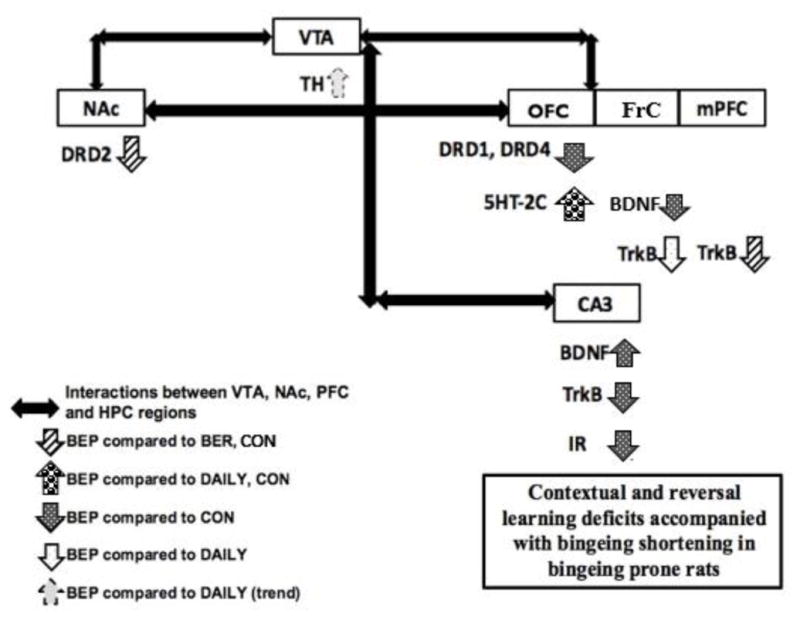Figure 5. Binge eating associated with cognitive deficits and gene expression changes in the NAc-OFC-CA3 neural network.

VTA-NAc mesolimbic pathway is the major “reward pathway” in the brain. Dopaminergic dysregulation in this pathway is implicated in palatable food associated reward and binge eating [124, 125]. A reduced Drd2 expression in the NAc, and a trend for increase in the VTA TH expression was associated with binge eating prone rats. Intact reversal learning is important for establishing adaptive responses or flexibility to altered contingencies [132]. Serotonin and dopamine systems in the OFC seems to be crucial in maintaining reversal learning behavior [97, 49]. We speculate that an increase in 5-HT2C expression, and decrease in Drd1 and Drd4 expression in the OFC region may have, at least in part, impaired spatial reversal learning in BEP rats. Furthermore, the interactions between the cortical-hippocampal regions are essential for intact cognitive performances [43, 44]. Bdnf-TrkB signaling disruption was observed in the HPC-PFC axis of BEP rats. Specifically, reduced TrkB and IR expression in the CA3 region of HPC were correlated with the impaired performance on novel object recognition task. Thus, alterations in expression of the genes regulating reward and cognition were accompanied with the impaired cognitive phenotype of shortening bingeing rats.
